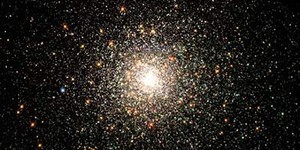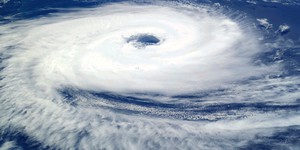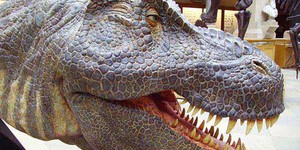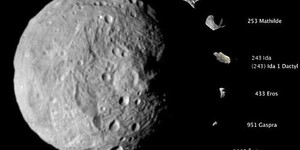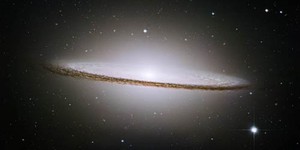Big Data Science Projects (25 results)
"Big data" is exactly what it sounds like, a really large amount of data. Science has always been at the forefront of gathering, visualizing, and trying to make sense of massive data sets. For example, think of the more than 661,000 (and counting) asteroids that have been discovered in our solar system. Or ponder that 1.2 million species have been caught, identified, classified, and catalogued on Earth. And then there are the approximately 3 billion base pairs sequenced from the human genome. Even before there was a term for it, scientists have been amassing and analyzing big data.
|
Select a resource
Sort by
|
In a survey conducted from 2007 to 2010, the U.S. Centers for Disease Control and Prevention reported that about 49% of people in the United States had taken at least one prescription drug during the past month, and about 22% of people had taken three or more prescription drugs. People are prescribed drugs all the time, but prescriptions can be dangerous because people can have different responses to drugs. These responses largely have to do with genetic mutations. Why are some genetic…
Read more
Featured
Have you heard that garlic powder is supposed to inhibit the growth of bacteria? Which do you think would make a better disinfectant: a solution of garlic powder or a solution of bleach? This project shows you a straightforward way to compare the effectiveness of different disinfectants (or other antimicrobial agents), by measuring zones of inhibition on a culture plate.
Read more
Would it surprise you to learn that no one knows the exact age of the universe? Astronomers have estimates, and as they gather increasingly precise data and measurements, they continue to refine those estimates to come up with more accurate estimates. In this project, you can look at data about stars in dense groups called globular clusters and come up with your own estimate for the minimum age of the universe. How closely will your estimate match those of other astronomers?
Read more
New
Have you ever noticed that on a hot day, it's more comfortable to wear a light-colored shirt than a dark one? Or that it's cooler in a park than walking down a street? This happens because different surfaces absorb and reflect heat in different ways. Urban heat islands are parts of cities where man-made surfaces like pavement and buildings replace natural surfaces like grass and trees. In this project, you will use temperature and satellite data to see if certain areas in a city have higher…
Read more
We've all heard that hurricanes draw their immense power from warm ocean waters. Of course, many factors contribute to the formation and growth of a hurricane, but can we expect to find that the warmer the water, the stronger the hurricane will be? This project shows you how to use online data archives to investigate this question.
Read more
Believe it or not, scientists were recently able to recover tissue from a 68-million-year-old Tyrannosaurus rex fossil! Not only were they able to purify non-mineralized tissue, but they also succeeded in obtaining partial sequence information for protein molecules in the T. rex tissue. In this genomics science fair project, you will use the T. rex's protein sequence to search sequence databases for the its closest living relatives.
Read more
You've heard of gold mining and coal mining, but think outside the box...or the planet...what about asteroid mining? Scientists, engineers, and business people believe asteroid mining is feasible, and they are in the beginning stages of long-term plans to mine asteroids for valuable resources during space missions. You don't want to miss out on all the fun; in this science project, you will come up with your own scientific plan for an asteroid mining company. We will help get you started by…
Read more
New
Remembering to take medicine at the right time can be hard, especially if you need to take multiple medications at different times of day. It might not be a big deal if you forget to take your daily multivitamin, but for some people, forgetting to take medication at the right time can be dangerous. What if you had a device that could not only set off an alarm at the right time, but also automatically dispense the right pills for you? In this project, you will build an automatic medicine…
Read more
Remember going to the doctor and getting vaccine shots? It is no fun getting poked with a needle, but fortunately, a vaccine helps our immune system to develop protection against a serious illness for years to come. But what about the flu vaccine? How come there is a new one every year? This science fair project will show you why.
Read more
Extinct might be a word you associate with animals that lived long ago, like the dinosaurs, but did you know that over 18,000 species are classified as "threatened" (susceptible to extinction) today? Scientists involved in wildlife conservation have a tough job; they are in charge of determining what needs to be done to prevent a species from becoming extinct. Habitat, food supply, and impacts of local human populations are just a few of the factors these scientists take into account. It is a…
Read more
The Milky Way is the edgewise view of our home galaxy, a disk made up of billions of stars. The Sun resides on one of the spiral arms of the disk, 30,000 light-years from the thick hub of the galaxy. The actual center, with a black hole 3-4 million times the Sun's mass, is hidden by dust clouds in space. In this astronomy science fair project, you will use astronomical data to locate the center of this galaxy.
Read more
Scientists recently found that some small drugs can stop infection by the deadly Ebola virus in
its tracks. Lab researchers found that these drugs bind to a protein that the Ebola virus uses to enter
our cells, and this is how infection is prevented. However, this also means that the bound protein no
longer functions in our cells. How might these drugs accidentally disrupt important biological processes
in our bodies? What other proteins might these drugs bind to? In this science project,…
Read more
Social media is all the buzz on the internet. What can we do with all the information generated by millions of people posting, tweeting, taking pictures, and chatting? How do companies convert it into profit? While you do not have the tools to analyze data from millions of social media posts by yourself, you will be able to analyze a scaled-down version. Follow the instructions in this project to try your hand at extracting data from a couple of social media sites and use it to create…
Read more
|
Explore Our Science Videos
Design and 3D Print a Snowflake
Aluminum Foil Boat Design - STEM Lesson Plan
Magic Triangles - Fun Math Puzzles with Increasing Difficulty





